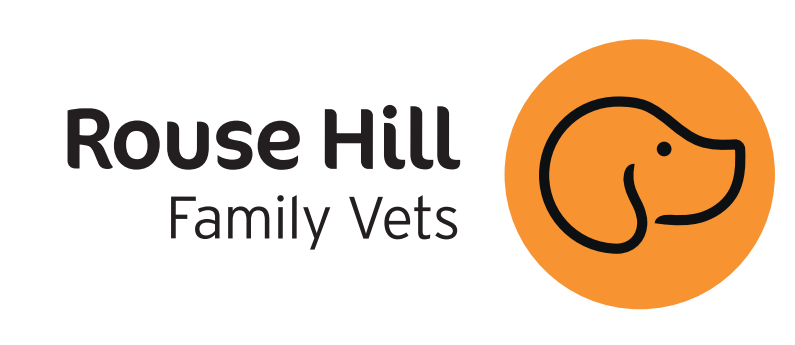FAQs
APPOINTMENTHow do I make an appointment?
-
- You can call us on 02 9086 9130 to request an appointment.
- Book an appointment online. If you are unable to find a time with our online booking system please give us a call and we will do our best to find a time that is suitable
What payment options are available?
Payment is required at the time of service. We accept credit card (Visa and Mastercard), Visa Debit, Mastercard Debit, Direct Deposit, Cash, ZipPay, and VetPay. We also provide GapOnly insurance, Trupanion, and Fetch Insurance.
How much notice do you need for euthanasia appointments?
What do I need to do to prepare for euthanasia appointments?
Should my other pets be there during the euthanasia appointment?
Should my children be there during the euthanasia appointment?
This is a family decision. Our veterinarians are happy to share their experiences with you. Here is a link to more in-depth information about children and euthanasia from our experiences as well as a link to an excellent resource regarding children and grief https://childhoodgrief.org.au/
Will euthanasia hurt?
No, your pet will be sedated first so that they are asleep before the euthanasia procedure begins. The drug is an overdose of an
Do families have to be present for the euthanasia?
It is an entirely personal decision and there is no right or wrong answer. Some families choose to stay for the sedation and step out of the room for the final euthanasia and return to say one final goodbye, others choose to stay from start to finish. We are happy to accommodate your preference and your veterinarian will be able to discuss this with you during the visit.
How do we know when the time to euthanise my pet is right?
This is one of the most common and most difficult questions to answer. Ultimately we are wanting to avoid your pet from suffering. Depending on your pet’s condition it will guide us to what is the right time. We use quality of life scales and pain scales to assess how your pet is coping. In addition, you know your pet best and so assessing some of the following can help you identify when is the right time:
- Eating habits: are they wanting to eat? Or are they off their food and require syringe feeding or are
loosing weight because they are unable to eat enough to maintain their body weight? Do they vomit whenever they eat? - Drinking habits: Are they able to drink enough to keep hydrated? When they drink are they able to keep it down?
- Toileting habits: Are they able to go to the toilet normally? Are they able to move away from their urine or
faeces if they have an accident? Have they developed incontinence and secondary urine scalding? Do they have ongoingdiarrhoea ? - Breathing: What is their breathing like? Are they coughing constantly or struggling to
breath ? Do they get out of breath very quickly? - Mobility: How well are they able to move around at home? Are the limping? Can they take themselves to the toilet? Are they able to get to and from their food and water bowls? How are they handling stairs or slippery floors? Are they regularly falling over?
- Sleeping habits: Are they able to sleep comfortably through the night or are they restless and unable to settle?
- Personality/mentation: Are they still happy to see you? Do they still show interest in their
favourite treats/toys/activities? Do they seem disorientated or distressed? Are they showing signs of separation anxiety or blankly staring at walls? - Good days vs bad days: Are they having more good days than bad or is it the other way around?
What can I expect during my pet’s euthanasia appointment?
When our veterinarian arrives they will discuss any questions or concerns you may have and will take time to explain the process and what to expect. Please ask as many questions as you like. The appointment will generally last 45 – 60 minutes. As our focus is you and your pet, we are happy to perform the euthanasia where you are most comfortable, this may be the living room or even in their
We ensure your pet is as comfortable as possible during the procedure by providing our euthanasia patients with a gentle sedative to allow them to go to sleep amongst family prior to placing an intravenous catheter and administering the final injection. We take our time, listen to your concerns and do not rush the procedure. We do not want your last memory of your pet to be one of them in distress.
After, you may spend as much time with them as you need. Our veterinarian will step out to provide you with some time for a private goodbye. When they return they will have a small basket or flat stretcher and a blanket to transport your pet to the car.
Information regarding how and when your pet’s ashes will be ready will be discussed in detail. We are also able to give advice on burial at home.
What is palliative care?
Palliative care is not about prolonging suffering, but about alleviating suffering until their gentle in-home euthanasia. It is no longer about curing the disease but focuses on controlling pain, discomfort, and anxiety that might come from being diagnosed with the disease.
As our pets age, it is easy to assume there is nothing that can be done to ease the aging process. There is, however, plenty that can be done to maintain their quality of life and ensure they are not just surviving but thriving. Palliative care
How do I prepare for a palliative care appointment?
We will assess your pet’s previous medical record, so we will need to know who your treating veterinarians are so we can read over their veterinary record and get an understanding of their current condition.
We will also email you a copy of a quality of life scale or pain scale to complete in advance of your appointment. This helps us to judge how well current medications and treatments are working to keep your pet feeling well.
When you book your appointment please let us know what you’re pets
It is a good idea to discuss with your family any questions or concerns you may have, write them down and have them with you during the appointment. We are always happy to answer your questions.
What if my pet needs in veterinary hospital care as a part of their palliative care?
How does acupuncture work?
We do not fully understand how acupuncture works, however, studies have shown that acupuncture points are different to surrounding tissue at the cellular level and that inserting acupuncture needles into acupuncture points stimulates the nervous system to release chemicals in the muscles, spinal cord, and brain.
From a Traditional Chinese Medicine view, acupuncture works by inserting needles into specific points in the body to achieve therapy and balance. It is based on a holistic concept of diagnosis and treatment and
How many acupuncture treatments are required?
It varies on the condition. We are generally treating geriatric patients with chronic conditions such as arthritis and so our recommendations tend to be weekly for approximately 4 weeks, which is then reduced to monthly or even three months depending on the condition. As the disease process progresses sometimes the treatment frequency increases again.
Does acupuncture hurt?
Acupuncture needles have round ends, not cutting ends, so they separate the skin and muscles. Some animals will feel some pressure or heat when the needle is inserted through the skin. Once the needle is through the skin the animal generally does not react.
How do I prepare for an acupuncture appointment?
Try to have your pet a little hungry for their appointment. It will help them to want to take treats from me. If your pet is on a special diet and you would rather us feed that than please have some on hand for us to use.
Does my pet need to stay still for acupuncture or require medication to be kept still for their treatment?
No, your pet is free to move around within reason during their acupuncture appointment. The arch-nemesis of acupuncture is the full body shake so where possible we try to prevent that from happening. We have plenty of tricks to help keep pets still during their acupuncture appointment with the top trick being treats. Most cats will rest comfortable or even fall asleep during their acupuncture treatment. Occasionally very fearful or stressed pets will be given a mild anti-anxiety medication prior to their treatment but for most pets, this is not necessary.
What can I expect after my pet has an acupuncture treatment?
There are three common outcomes after the initial treatment:
- No obvious change in the symptoms, but the animal may be brighter
- Symptoms improve for 24-48 hours, then slowly declined but are always better than prior to starting the treatment
- Symptoms get worse for 24-48 hours, and then steadily improve (similar to what you may experience after a massage or physiotherapy appointment)
What conditions can acupuncture treat?
- Musculoskeletal system – including arthritis
- Nervous system disorders
- Urinary tract disease – including FLUTD in cats
- Respiratory tract disorders
- Cardiovascular disease
- Skin disease
- Gastrointestinal disease

Address
Rouse Hill NSW 2155

Opening Hours
Monday - Thursday: 9am - 6pm
Friday: 9am - 5pm
Saturday: 9am - 1pm
Sunday & Public Holidays Closed
In-home euthanasia services run outside of opening hours by appointment only

